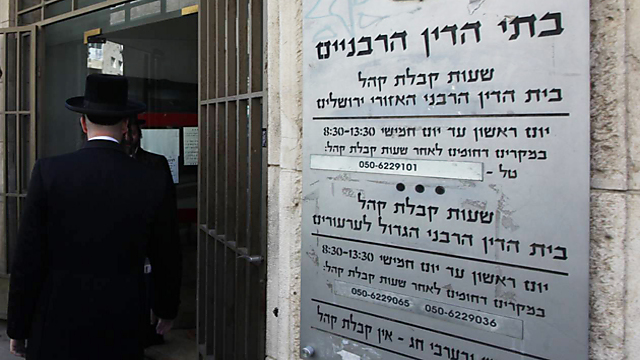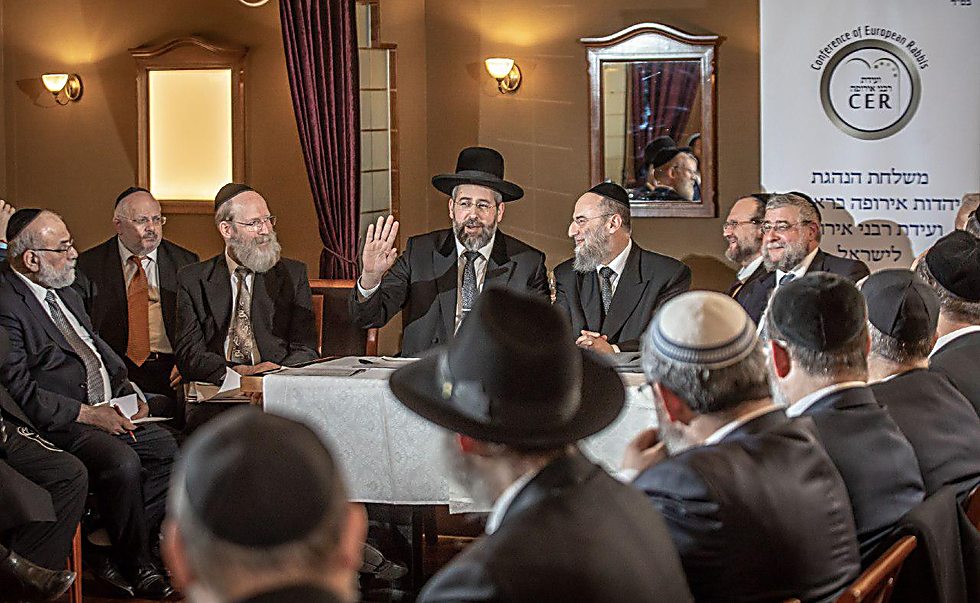The struggle for transparency in religious services is beginning to bear fruit: Chief Rabbinate publishes list of foreign rabbinical courts recognized for perforating conversions and divorce; many express concern about the move, claiming the list still ‘excludes a large part of Diaspora Jewry.’
The Chief Rabbinate publishes a list of foreign rabbinical courts recognized for the performance of conversions and divorce. The move follows a petition by ITIM Institute against the so-called ‘blacklists’ of disqualified courts.
Their goal is to finally regulate a domain that has been characterized by vagueness and uncertainty. However, criteria have not yet been determined for the Rabbinate to recognize individual rabbis from abroad.

To date, the Chief Rabbinate has denied the claim that it maintains lists of recognized rabbis or rabbinical courts, and certainly the existence of a secret “black list” of those who are disqualified in their eyes. According to the Chief Rabbinate, each case is examined on its own merits. The rabbinate also admitted that it had never formulated criteria for the recognition of rabbis abroad. However, two years ago, after being criticized by the court, it undertook to formulate such measures.
Now, for the first time, two lists, whose existence has previously been denied, have been published; including some 80 courts around the world that the Chief Rabbinate recognizes to perform conversions, and about 70 that are recognized to testify regarding an individual’s “marital status.”
However, a list of individual rabbis, if it indeed exists, was not revealed. In addition, the rabbinate published the recently formulated criteria for recognizing new courts. Yet the courts appearing on these lists do not necessarily fulfill all the requirements, but have been approved for reasons that have yet to be explained.
The new criteria stipulate that Rabbis from foreign courts who wish to be included on the list will be invited to an oral examination performed by rabbis of the Rabbinical Court of Israel, and appointed by the rabbinate. The test will examine their knowledge— in theory and in practice— in the laws of divorce and conversion. Based on the results, the committee will then decide whether to recommend recognizing these courts to the Chief Rabbinic Council.
Justice for rabbis who were rejected in the past
ITIM organization, which led the legal struggle to formulate the criteria, welcomed the publication of the lists, which are expected to make life easier for those who apply for assistance with state religious services.
“This is another important step towards the regulation of relations between the State of Israel and Diaspora Jewry, and we are happy that after our adamant struggle, the list has finally been published and there is something to work with,” said ITIM Director Dr. Shaul Farber
Despite the achievement, Farber expressed reservations about the composition of the list and the new criteria.
“We must examine why rabbis whom the Chief Rabbinate say are trusted are not on the list. But it is a positive step towards transparent and improved religious services for the Jewish public in Israel and abroad.”
ITIM also called on the Rabbinate to act fairly and impartiality towards community rabbis whose conversions have been rejected with no explanation given.

The list — ‘a source of concern’
Shmuel Shetach, the director of the Ne’emanei Torah v’Avodah, a religious Zionist movement, also expressed reservations about the move.
“The list of rabbinical courts published is one step forward and two steps backwards. Instead of publishing clear and equal criteria that will bring about a de facto recognition of all communities abroad, the rabbinate continues to play games and excludes a large part of Diaspora Jewry, “Shetach said.
“While the time has come for a methodical list—not ‘black lists’ leaving bureaucrats to do whatever they want—the fact that the current list does not include rabbis and important communities abroad is a source of deep concern.
“We expect and hope to see a completion of the process of recognizing the rabbis of the Diaspora, which can advance the healing of the great rift between Diaspora Jewry and the State of Israel,” he added.
Meanwhile, the Conference of European Rabbis (CER) announced Tuesday that it had reached an agreement with the Chief Rabbinate according to which, the State of Israel would recognize conversions and divorce from Europe only if they were performed in courts approved by senior rabbis from the Chief Rabbinate.
European rabbis expanding their activities
A delegation of CER’s rabbis, headed by CER’s President Rabbi Pinchas Goldschmidt, arrived in Israel last week and met with Chief Rabbi David Lau. Lau promised them that the rabbinate would not recognize conversions performed by “roving” rabbis, but only those belonging to recognized courts.
The rabbis issued a statement pledging to “expand its activities and provide court services to smaller communities… There will be no conversion in places where there is no infrastructure for Jewish communal life. An international database will be set up to promote closer cooperation between the courts in Europe and in Israel.”
As reported by Ynetnews
